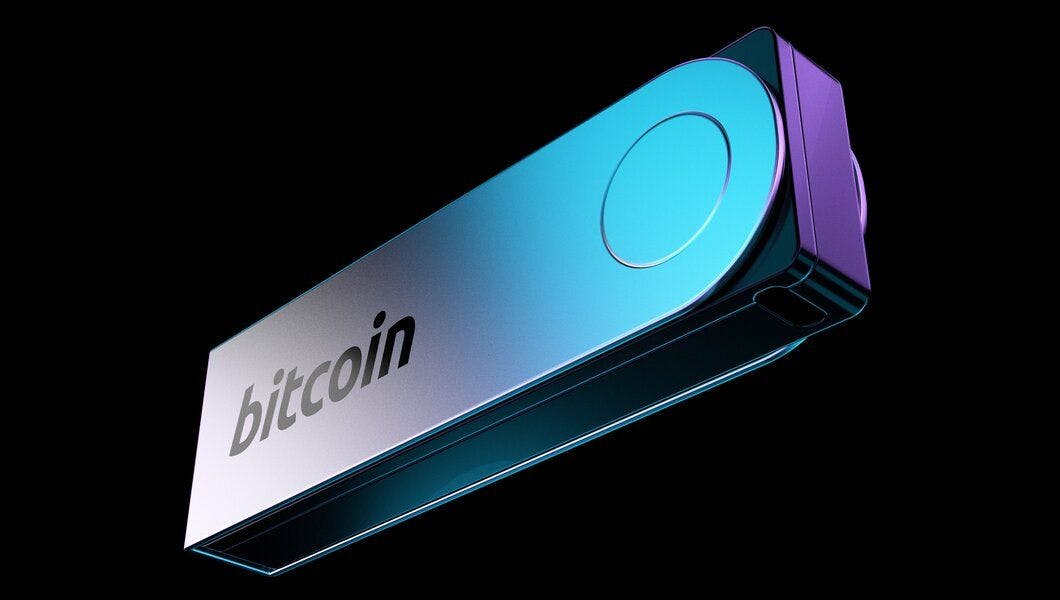
Do I really need a hardware wallet? How safe are they?
6 Sep 2023

6 Sep 2023
A hardware wallet is a physical device that stores the private keys to your crypto assets and allows you to sign transactions. Hardware wallets are often considered to be the most secure type of cryptocurrency wallet because they are offline and are not susceptible to cyber hacks. But how safe are they and are they the best choice for securing your crypto holdings? This blog post will explore the benefits and risks associated with using a hard wallet and help you determine if a hard wallet is right for you.

As a specialized type of cryptocurrency wallet, hardware wallets store the user's private keys in a secure hardware device. Unlike software wallets that run on computers or smartphones and are vulnerable to malware and hacking attempts, hardware wallets offer an extra layer of security by ensuring that the private keys are never exposed to the online world.
Because it generates and stores your private keys offline, hard wallets help you avoid a lot of the cyber risks that crypto users face today. However, maintaining your hardware wallet and device and managing backups may be less convenient for many crypto enthusiasts. Recent technologies like multi-computational wallets (MPCs), Signature Threshold Schemes, and Social Recovery have combined for premium wallet security.
Typically, a hardware wallet resembles a USB stick and requires physical interaction to confirm transactions, providing an effective shield against remote hacking attempts. This makes them one of the safest options for individuals looking to store significant amounts of cryptocurrencies over extended periods.
Using a hardware wallet involves a series of straightforward steps to ensure the safe storage of your cryptocurrencies.
Once set up, you connect the wallet to a compatible software interface on your computer or mobile device when you want to send or receive cryptocurrencies. Always ensure you are sending funds to the correct address and double-check transaction details on the hardware device's screen before confirming.
Unlike software wallets, which are vulnerable to malware, phishing attacks, and system breaches, a hardware wallet isolates your private keys from the internet, ensuring they remain uncompromised even if your computer gets infected.
This physical barrier between digital assets and potential hackers grants many users peace of mind. Furthermore, hardware wallets typically require manual verification for transactions, adding another layer of security. Besides heightened security, hardware wallets have other benefits as well:
While hardware wallets offer robust security for cryptocurrency holdings, they are not without risks.
When using a hardware wallet, make sure to buy from reputable companies, check thoroughly for any signs of tampering, store it in a safe place, and use antivirus software on your associated devices.
Hardware wallets are generally more secure against online threats, but they are not entirely foolproof. Users should always ensure they follow best practices and keep their devices' firmware and antivirus software updated, store the device in a safe place, and maintain backups for the pin and seed phrase.
 What happens if I lose my hardware wallet?
What happens if I lose my hardware wallet?Losing your hardware wallet can be a daunting experience and is the primary risk of owning one. However, you can take a few steps to minimize the damage.
A hardware wallet is an important tool for your overall crypto security. By generating and storing your private keys offline, you avoid a lot of the cyber risks that crypto users face today.
However, maintaining your hardware wallet and device and managing backups may be less convenient for many crypto enthusiasts. Recent technologies like multi-computational wallets (MPCs), Signature Threshold Schemes, and Social Recovery have combined for a premium wallet for crypto security.
Recent technologies like multi-computational wallets (MPCs), Signature Threshold Schemes, and Social Recovery have combined for a leading edge security for crypto assets.
MPC wallets enable you to select your network of trusted Guardians (aka like the signers in a multisig wallet). Each Guardian has access to one a key shard. MPC wallets have one one major difference from multi-sig wallets:
The private keys with MPC wallets are generated virtually and split into distributed shares. So, while the private keys are generated online, they are in pieces that are never online in one place.
With this type of wallet, if your mobile device becomes damaged or compromised, you can initiate a Social Recovery process from a threshold (percentage) of Guardians. The same goes for transaction signing - a threshold of signatures (i.e. 3 of 5) is required to be online for automated transaction signing.
While a hardware wallet is one of the mainstays of crypto security, it does create extra work for the digital asset holder. A mobile Social Recovery wallet like Gridlock provides the convenience of a hot wallet with the security of cold storage. Try it out today and see!

- - -
Written by Mason Winsed

Mason Winsed simplifies blockchain for the people. With a comp-sci background and a passion for crypto safety, he's your go-to for straight-forward crypto wisdom. In his off time, he's coding or gaming. Join Mason for a no-nonsense crypto talk.